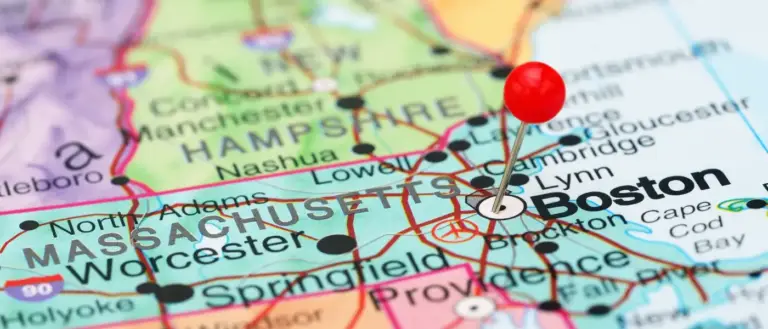Supreme Court Strikes Down PASPA: Paves Way for Legal Sports Betting

The Supreme Court has ruled the federal ban on sports betting unconstitutional, freeing the way for states to legalize sports betting.
In a majority opinion released this morning, the Supreme Court struck down the Professional and Amateur Sports Protection Act (PASPA) as unconstitutional. PASPA, often referred to as “the federal sports betting ban” here at BettingUSA.com and other websites, will no longer prevent individual states from legalizing sports betting.
Sports Illustrated reports that two of the Justices dissented in full and another in part, while six Justices were fully in agreement that PASPA is unconstitutional.
The key portion of today’s ruling reads:
“The legalization of sports gambling is a controversial subject. Supporters argue that legalization will produce revenue for the States and critically weaken illegal sports betting operations, which are often run by organized crime. Opponents contend that legalizing sports gambling will hook the young on gambling, encourage people of modest means to squander their savings and earnings, and corrupt professional and college sports.
“The legalization of sports gambling requires an important policy choice, but the choice is not ours to make. Congress can regulate sports gambling directly, but if it elects not to do so, each State is free to act on its own. Our job is to interpret the law Congress has enacted and decide whether it is consistent with the Constitution. PASPA is not. PASPA ‘regulate[s] state governments’ regulation’ of their citizens, New York, 505 U.S., at 166. The Constitution gives Congress no such power.
“The judgement of the Third Circuit is reversed.
“It is so ordered.”
What this all means is each state now has the authority to decide if it wishes to legalize sports betting.
Four states have recently passed laws legalizing sports betting contingent upon this exact ruling and two others already have the means in place to expand. Those laws will take effect shortly and soon players in those states will be able to bet on sports legally, both in-person and online.
More than a dozen other states have introduced legislation seeking to legalize online sports betting if the federal ban is ended. Those efforts will likely receive a boost now that the Supreme Court has empowered the states to decide the issue for themselves. In several instances, lawmakers have stated they do not want to be left behind as neighboring states pass similar legislation.
The race to legalize sports betting is on.
First Reactions
Former New Jersey Governor Chris Christie, who originally led New Jersey’s challenge of the federal sports betting ban, released a short statement on Twitter after the news broke:
Current NJ Governor Phil Murphy also applauded the decision with a short statement released this morning:
“I am thrilled to see the Supreme Court finally side with New Jersey and strike down the arbitrary ban on sports betting imposed by Congress decades ago.
“New Jersey has long been the lead advocate in fighting this inherently unequal law, and today’s ruling will finally allow for authorized facilities in New Jersey to take the same bets that are legal in other states in our country.
“Today’s victory would not have been possible without the incredible bipartisan effort from so many in our state, particularly former Governor Christie and former State Senator Lesniak. I look forward to working with the Legislature to enact a law authorizing and regulating sports betting in the very near future.”
Leading daily fantasy sports site DraftKings was also quick to jump on the news with a statement of its own confirming the company’s intent to enter the sports betting market. In a statement, DraftKings co-founder and CEO Jason Robins said this:
“Our mission has always been to bring fans closer to the sports they love and now, thanks to the wisdom of the Supreme Court, DraftKings will be able to harness our proven technology to provide our customers with innovative online sports betting products. This ruling gives us the ability to further diversify our product offerings and build on our unique capacity to drive fan engagement.
He went on to say:
“Today’s Supreme Court ruling is welcome news to the millions of Americans who currently wager $150 billion illegally each year through off-shore, black market bookies. States are now free to allow their residents to place mobile sports bets with licensed, trusted companies based in the U.S. and that pay taxes here.”
DraftKings has made no secret of its intention to get involved in sports betting. Even before the Supreme Court ruling, DraftKings had already created a new position called Head of Sportsbook and recruited Sean Hurley to fill that position.
Each of the four major professional sports leagues plus the NCAA have released statements in response to the ruling. The NFL, NBA, MLB, NHL and NCAA all reiterated their commitment to protecting the integrity of their games. The NFL and NBA also called on Congress to implement a federal framework for regulating sports betting in the USA.
You can read all four statements in full.
Sports betting stocks also reacted to the news. The Stars Group (TSG), Churchill Downs Inc (CHDN), MGM Resorts International (MGM), International Game Technology (IGT), Boyd Gaming Corporation (BYD) and William Hill (WIMHY) are all up on the day. Wynn Resorts Limited (WYNN) is the one stock we mentioned in our post listing sports betting stocks that is down on the day.
What Happens Next
People in some parts of the United States will be able to bet on sports in the near future, several states have already passed laws in anticipation of this ruling. A little time will go by before you can head to the nearest sportsbook to bet on the game, but some states will move quickly.
Monmouth Park in New Jersey, for example, has announced plans to finish and open its own William Hill Sports Bar within the next few weeks. Dennis Drazin, CEO of the company that operates Monmouth Park, said in a statement, “We can now shift our focus on commencing sports betting, which will be off and running at Monmouth Park as soon as possible.”
The New York Post also reports that Mississippi, Pennsylvania and West Virginia could potentially begin offering sports betting within the next 60 to 90 days.
In addition to the states that have already legalized sports betting ahead of this decision, more than a dozen others are considering similar legislation. We’ll be taking a look at those states shortly.
The professional sports leagues are likely to ramp up their lobbying efforts at the state level. The NBA, MLB, and to a smaller extent, the PGA have already been active in this area by sending representatives to multiple statehouses in an effort to convince lawmakers to make certain concessions the sports leagues want.
The NBA has led on this front, followed by the MLB. Both leagues seek the following concessions in any sports betting legalization bill:
- Sports Integrity Fee: This is the most controversial demand being made by the NBA and MLB at the moment. Both leagues want sports betting operators to pay a 1% “integrity fee” to the leagues. This fee would be calculated as 1% of the total sum of wagers placed on sports organized by each league.
- Betting Restrictions: The leagues want the ability to restrict sportsbooks from offering certain types of bets on their events. This appears to stem from a desire to prevent wagers that could easily lead to corruption, such as bets on the first pitch thrown or first foul committed.
- Data Rights: Sports leagues want sportsbooks to be forced to rely on official data from the sports leagues to settle all wagers. This would presumably allow the sports leagues to control data access and charge fees for that data.
- Legal Online Betting: The sports leagues want lawmakers to authorize online betting as it makes it less likely that gamblers visit unregulated offshore sportsbooks out of a desire for convenience.
It is also likely that the sports leagues ramp up their lobbying efforts at the federal level. The Supreme Court’s decision does not preclude Congress from regulating sports betting whatsoever; it simply prohibits Congress from telling the states whether they may or may not legalize sports betting. As the ruling explained, states are free to act however they wish absent any regulatory move from Congress.
Interestingly, at least one of the sports leagues that originally filed suit blocking New Jersey’s sports betting law has already announced its intention to lobby Congress in favor of passing sports betting regulations at the federal level.
The NBA was particularly vocal about wanting federal regulation even though it too was a plaintiff in the New Jersey sports betting case. Late last year, the NBA said it supports the legalization and regulation of sports betting, but at the federal level rather than on a state-by-state basis.
NBA Senior VP and Assistant General Counsel Dan Spillane said that New Jersey and the NBA share the same ultimate policy outcome of having legal and regulated sports betting – they just disagree on how to get there. While New Jersey has fought for its right as a state to regulate sports betting, the NBA wants Congress to handle regulation for all states that opt in to legalize sports betting.
In 2017 New Jersey Representative Frank Pallone introduced the Gaming Accountability and Modernization Enhancement Act (GAME Act) seeking to repeal PASPA and create a framework for states to legalize sports betting.
The GAME Act does not seek to regulate sports betting on its own; rather it would allow the states to legalize and regulate sports betting as they see fit. However, the GAME Act would give the federal government oversight of regulations to ensure each state provides adequate consumer protections.
Rep. Pallone said this in response to Monday’s ruling:
“Now that the Supreme Court has struck down this unlawful and confusing law, it is time for Congress to move the GAME Act forward to ensure that consumer protections are in place in any state that decides to implement sports betting.”
States that Legalized Sports Betting in Advance
Four states have recently passed legislation allowing certain entities to offer sports betting within state lines. Two additional states already had exemptions from PASPA that allowed them to operate limited forms of “sports lotteries.” These are the states where legal sports betting may become a reality sooner rather than later.
New Jersey: New Jersey residents may be able to bet on sports legally at Monmouth Park by May 28th, unless the governor says no. New Jersey passed a law repealing the state-level sports betting prohibition as a part of its fight against PASPA, but did not implement any regulations.
Lawmakers may decide they want to hold off until they can implement regulations, but even that could happen sometime in June if things move along smoothly.
Read more: New Jersey sports betting.
Mississippi: A bill passed in Mississippi last year related to fantasy sports also included a little-noticed provision ending the state prohibition of sports betting.
The Mississippi Gaming Commission (MGC) director said the MGC could have regulations in place and allow casinos to begin taking wagers within 45-60 days – plenty of time for the upcoming NFL season.
Read more: Mississippi sports betting.
Pennsylvania: Pennsylvania passed sweeping gambling legislation that included authorization of sports betting at casinos and online if the Supreme Court rules in favor of New Jersey.
Now that the Supreme Court has issued its decision, the Pennsylvania Gaming Control Board will need to issue regulations and casinos prepare themselves to take bets. The timeline here isn’t as clear, but it’s possible to see legal sports betting Pennsylvania ahead of the 2018 football season.
Read more: Pennsylvania sports betting.
West Virginia: West Virginia legalized sports betting last year contingent on the Supreme Court case. The bill gives licensed casinos and race tracks in West Virginia the ability to take sports wagers and will have the WV Lottery Commission oversee the activity.
Today, Lottery Commission Director Alan Larrick said he would like to see everything ready to go and begin taking wagers in time for the football season.
Read more: West Virginia sports betting.
Delaware: Delaware is one of the few states that received a partial exemption from PASPA due to an existing sports lottery run by the state lottery. Today’s ruling allows Delaware to significantly expand its limited parlay-style sports lottery to full-fledged sports betting.
Officials are adamant that the state prioritize getting it right over moving quickly, but Governor John Carney did say “full scare sports gaming could be available at Delaware’s casinos before the end of June.”
Read more: Delaware sports betting.
Oregon: Oregon also received an exemption from PASPA for the Sports Action NFL parlay game that was run by the lottery for 18 years. The state voluntarily shut down that game to induce the NCAA to host championship events in the state, but now lottery officials say they are interested in reviving sports betting in Oregon.
A timeline on the Oregon Lottery reintroducing sports betting remains unclear. An official with the state lottery told The Oregonian that they “have been interested” in bringing back sports betting, but says “what a new offering could look like is too early to tell.”
Read more: Oregon sports betting.
Other States with Active Sports Betting Legislation
The six states detailed above are far from the only states interested in legalizing sports betting. Legislation to legalize and regulate sports betting has been introduced in 15 other states:
| California | Connecticut | Illinois |
| Indiana | Iowa | Kansas |
| Kentucky | Louisiana | Maryland |
| Massachusetts | Michigan | Missouri |
| New York | Rhode Island | South Carolina |
The situation is unique in every state with bills that differ in what they allow, how they regulate sports betting and who may offer sports betting. These bills are also different in how far along they have progressed. Some appear to be on the verge of dying while others may be on the verge of passing.
Now that the Supreme Court has issued its ruling, we expect to see more action in most of these states with lawmakers emboldened by a new, sports betting-friendly landscape. The outcome is uncertain in every state, but it is highly likely multiple states will join the sports betting party in 2018 and 2019.
You can read more about the situation in each of these states in this post published last month. In that post, we describe legislation that is in play, link to active bills and explain the potential outcome of each bill.
How We Got Here
Congress passed the Professional and Amateur Sports Protection Act in 1992 in an effort to protect the integrity of sporting competition in light of a growing demand for sports wagering. PASPA banned all states from authorizing or regulating sports betting, but included limited exemptions for states that already had sports betting legislation on the books.
Nevada was the only state at the time with full-fledged sports betting and received the only complete exemption. This is why Nevada has always been the one state with true sports betting.
Delaware, Oregon and Montana also had laws in place allowing their state lotteries to offer “sports lotteries” that basically only accepted parlay-style wagers. Those three states received exemptions for their sports lotteries but were prohibited from expanding their sports wagering options beyond that.
That status quo remained unchallenged until New Jersey came along in 2011 with a public referendum asking state residents if they would like to approve legal sports betting. Voters approved and lawmakers passed a bill decriminalizing sports betting the next year.
The four major sports leagues and the NCAA sued to stop the law from taking effect and a judge ruled in favor of the sports leagues. New Jersey appealed, but the Third Circuit Court of Appeals also ruled against New Jersey. New Jersey appealed to the Supreme Court of the United States, but the Supreme Court declined to hear the case.
New Jersey later attempted to get around the federal law by passing a law in 2014 that simply repealed New Jersey’s own betting prohibition rather than explicitly authorizing sports betting. The leagues sued again and once again, the Third Circuit ruled against New Jersey.
Again, New Jersey appealed the decision to the Supreme Court. In 2017, the Supreme Court surprised everyone by announcing it would hear the case this time. The sports leagues and New Jersey presented oral arguments in front of the Supreme Court last year. And now today, the Supreme Court has issued its ruling in favor of New Jersey.
With today’s ruling, states are now free to legalize and regulate sports betting as they see fit. What seemed impossible just a few short years ago has become reality. The uphill portion of this long-running legal battle is over and now that PASPA has been overturned we can look forward to a flurry of activity as lawmakers race to implement sports betting in their states.







